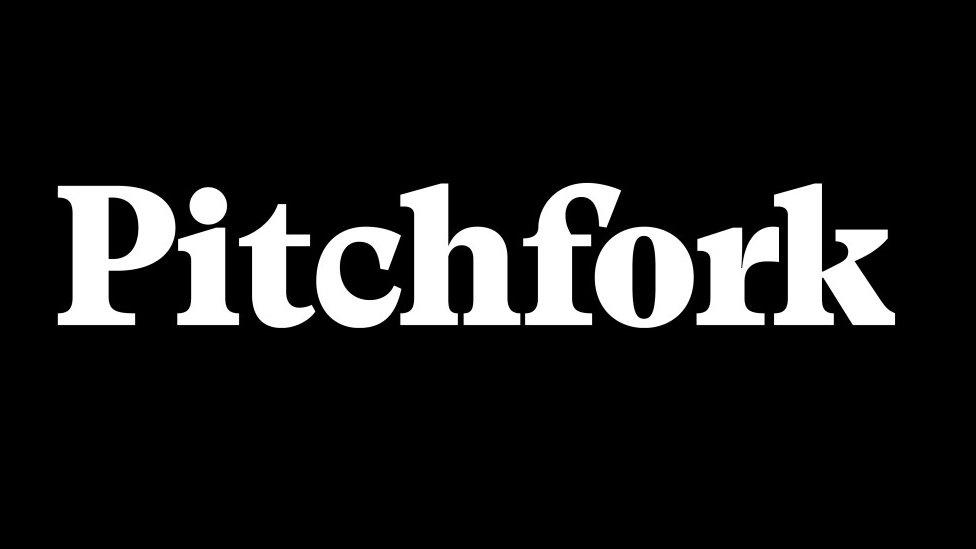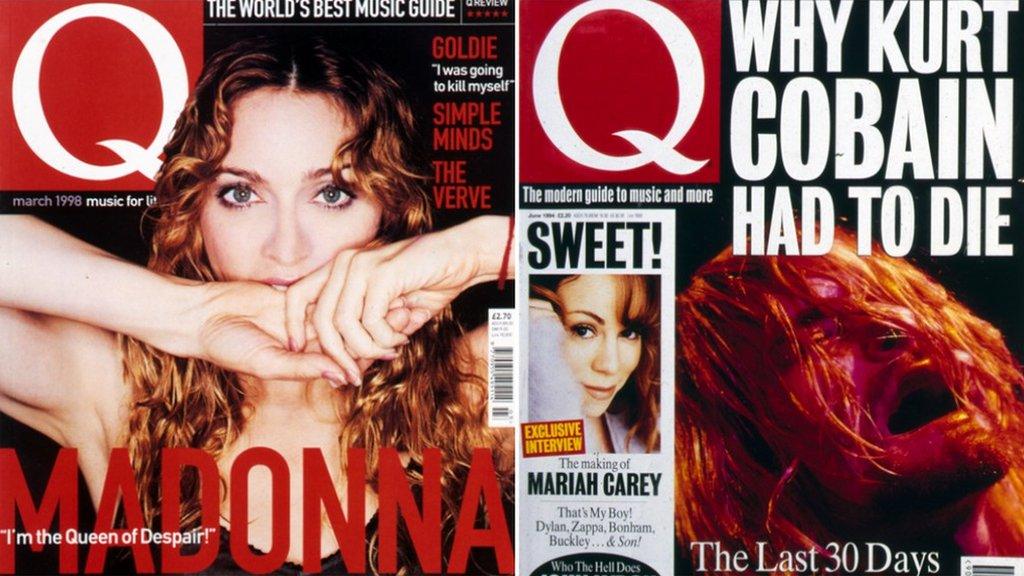Anger and sadness over Pitchfork merger with GQ
- Published

Popular music website Pitchfork is to merge with men's magazine GQ, with several senior staff losing their jobs.
Publisher Condé Nast announced the changes and resulting layoffs on Wednesday, in an email to staff from chief content officer Anna Wintour.
Many have spoken of their sadness at the merger, at a time where there are widespread cuts to newsrooms globally.
Two unions representing Pitchfork staff said they "categorically condemn" the decision.
Pitchfork started in 1996 as an independent music blog out of the US state of Minnesota.
It soon became one of the world's most respected independent music publications, perhaps best known for its at-times tough reviews. It was acquired by Condé Nast in 2015.
Condé Nast did not respond to the BBC's request for comment, but an email to staff from Ms Wintour has been widely shared.
"Today we are evolving our Pitchfork team structure by bringing the team into the GQ organization," the email reads.
It adds that "some of our Pitchfork colleagues will be leaving the company today" without specifying how many, though Ms Wintour says that editor-in-chief, Puja Patel, would be leaving.
Several Pitchfork staff who have lost their jobs have taken to X, formerly Twitter.
Senior staff writer Marc Hogan, who started writing for Pitchfork in 2004, said: "I know music journalism isn't exactly brain surgery, but I have been privileged to do a bunch of work I'm really proud of, with amazing colleagues. Like too many of them, I was laid off today."
Jill Mapes, Pitchfork's features editor, said she was a casualty of the "mass layoffs".
Allow X content?
This article contains content provided by X. We ask for your permission before anything is loaded, as they may be using cookies and other technologies. You may want to read X’s cookie policy, external and privacy policy, external before accepting. To view this content choose ‘accept and continue’.

Amanda Petrusich, a staff music writer at The New Yorker, said she "wouldn't have a career without Pitchfork. Probably wouldn't know much about music, either."
"Feels like a death knell for the record review as a form. Absolutely gutted for my dear, dear friends & colleagues."
The Pitchfork Union and The NewsGuild of New York released a statement condemning the merger.
"The reporters, editors, producers, researchers and all the people who make award-winning music journalism for Pitchfork, deserve better than to be treated like disposable parts," said Susan DeCarava, president of the NewsGuild of New York.
And even those who were on the receiving end of Pitchfork's most scathing reviews have been speaking out in support of the publication.
Producer Dan Le Sac, who famously received a 0.2/10 review in 2008, external, said: "Pitchfork getting gutted is a net negative for musicians everywhere. And I say that as the proud owner of (potentially) the lowest score on the site.
"Whether you agree with a reviewer or not, music needs more journalism, not less."
Pitchfork becomes just the latest music newsroom to hit hard times.
In 2020, Q Magazine, a cornerstone of rock journalism in the UK, closed after 34 years. The iconic NME magazine stopped printing a weekly magazine in 2018.
Related topics
- Published7 March 2018

- Published20 July 2020
